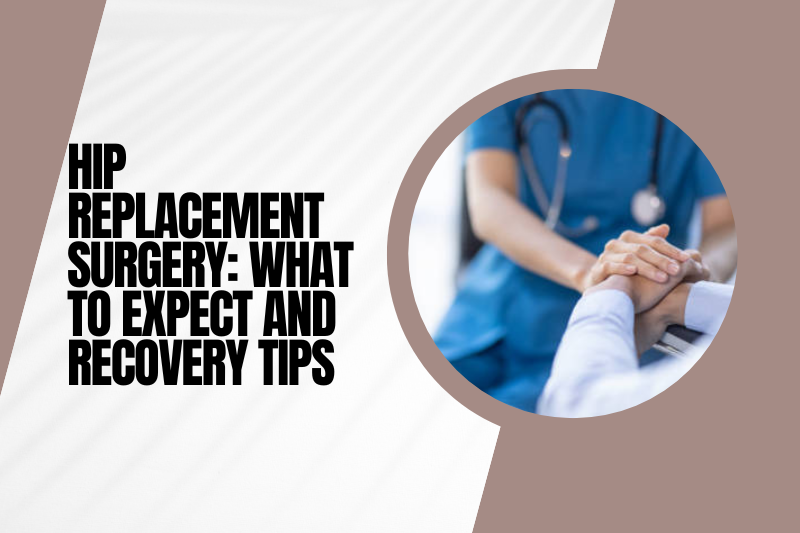Just had your hip replacement surgery done, or are you planning to get one? Here’s what you can expect throughout the surgery, along with recovery tips.
Hip pain or discomfort can significantly impact daily life, limiting mobility and causing trouble with even the simplest tasks. Moreover, the condition worsens if you are suffering from a severe disorder like osteoarthritis, avascular necrosis, or a critical hip injury. Then, the only solution to tackle such a situation is getting hip replacement surgery. More than one million hip replacements are performed globally each year.
Because of its world-class treatment and premium services at an affordable price, Udiaipur is a hub for Indian and global patients seeking hip replacement surgery. However, the concern is not about finding the best orthopedic hospital in Udaipur but about understanding what happens when you get your hip replacement and how you can quickly recover from it.
What Exactly Is Hip Replacement Surgery
Let’s start the blog by understanding the meaning of hip replacement surgery. It is a medical procedure that replaces a damaged hip joint with an artificial implant. The surgery aims to relieve patients’ pain and enhance their mobility. Further, it is broadly classified into two categories:
Partial Hip Replacement
It is also known as a surface replacement, and it is recommended when only the femoral head or ball of the hip joint is replaced. The rest of the hip joint remains intact.
Total Hip Replacement
As the name suggests, this included replacing both the hip ball and socket or the femoral head and acetabulum. It is a comprehensive operation that requires expert care.
What to Expect During Surgery
The process of hip replacement surgery depends on your medical history and severity. However, in general conditions, here is what a patient can expect:
Pre-Surgery Analysis
Any advanced hip replacement surgery in Udaipur or anywhere in the world will start with a thorough evaluation to understand the patient’s present and past medical conditions. A team of special orthopedics will go through the physical examination, imaging test, and other factors to assess your damage and analyze the right approach for you. Later, you will be given appointment dates for the surgery.
Anesthesia Administration
Once you report to the hospital on a decided date, you can expect to receive anesthesia. Hip replacement surgeries are performed when you are asleep under general anesthesia or regional anesthesia, based on your condition. It offers a painless operation and keeps you in a relaxed position.
Incision and Bone Removal
After anesthesia, a qualified surgeon will make an incision over your hip. The size of the incision depends on the type of surgery and severity of the hip damage. The damaged ball or sockets are removed from the body through the incision.
Replacement and Recovery
Now comes the main step replacement. Surgeons will now implant an artificial hip joint consisting of a new “ball” (femoral head) and socket (acetabulum). Once the entire process is done, you will be taken to the recovery room, where the dedicated medical staff will monitor your condition for about 2-5 days.
Recovery Tips: Post Hip Surgery
Whether you get your hip replacement surgery in Udaipur or any other place, recovery is the most crucial state. The exact time required for recovery varies from person to person. Maximum patients start participating in everyday activity within 6 weeks and get full recovery in around 12 weeks. However, one must follow their surgeon’s advice and recommendations to ensure safety and greater mobility.
Here are some general recovery tips from J.P Orthopedic Hospital, the best orthopedic trauma care in Udaipur:
- Take prescribed medicines and painkillers on time to manage pain and prevent infection.
- Don’t limit mobility. Day by day, start practicing gentle movements to prevent stiffness.
- Don’t skip post-surgery follow-up appointments to keep track of healing progress.
- Start practicing weight-bearing exercises based on the physiotherapist’s recommendations. However, be careful and avoid sudden movements that can damage your hip joint.
- You may also use walking aids, such as a walker or crutches if you feel discomfort while walking at the start of the recovery.
- Take a balanced diet full of bone-building nutrients. Add milk to your regime to get protein and calcium. Your doctor may also prescribe additional supplements for you in some cases.
- Get your ideal intake of water.
- Quit unhealthy lifestyles like smoking and alcohol consumption.
- Be careful with fractures. Avoid height and slippery floors that may cause falls.
Final Words
Lastly, please understand that hip replacement surgery is a crucial process. Even its recovery takes patience and time. Don’t hesitate to seek help and assistance. If you have received your hip treatment from J.P. Orthopedic Hospital, we have a team of the best orthopedic surgeons in Udaipur who can assist you throughout the journey. All you need is to trust us, and we will give you back your valuable mobility.




